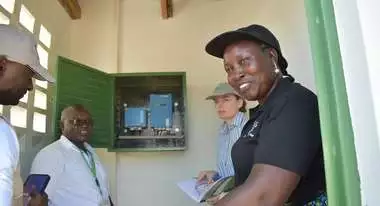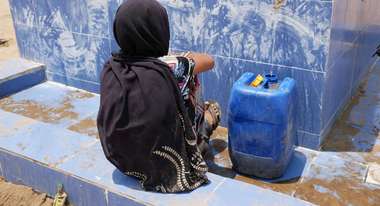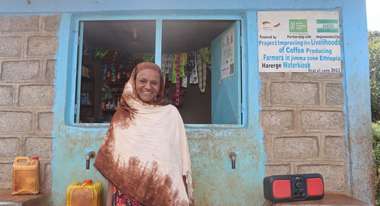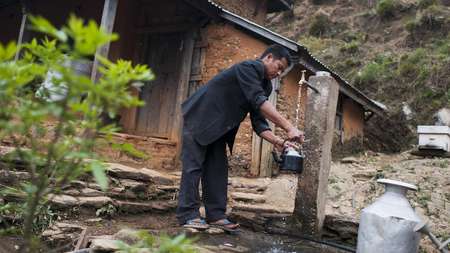
Clean Water and New Toilets
In many parts of Nepal, going to the toilet is not as simple as it may seem. Many residents of the remote mountain villages of Nepal's Churia Range can relieve themselves only in the fields. This results in contaminated drinking water and frequent incidences of diarrhoea. Welthungerhilfe and Viva con Aqua are working to change this fact.
Nepal is one of the least developed countries in the world. Every second child suffers from malnutrition, and a third of the population lives on less than USD 1.00 per day. In the remote mountain regions on the border with India, the situation is particularly tense. Here, each day is a fight for survival. 60% of people lack toilets and clean drinking water.
People often wait until dark to relieve themselves, no matter how urgent the need. When darkness falls, they go to do so in the fields. Sirimaya Tamang, too, knows how painful it can be to hold back all day. She, her husband Kali and their three children live in one of the mountain villages of the Churia Range. She used to suffer frequent stomach aches because of the lack of places in which she could find some privacy. Out of modesty, she would wait until evening. Then, however, she would fear assault, dangerous snakes and scorpions.
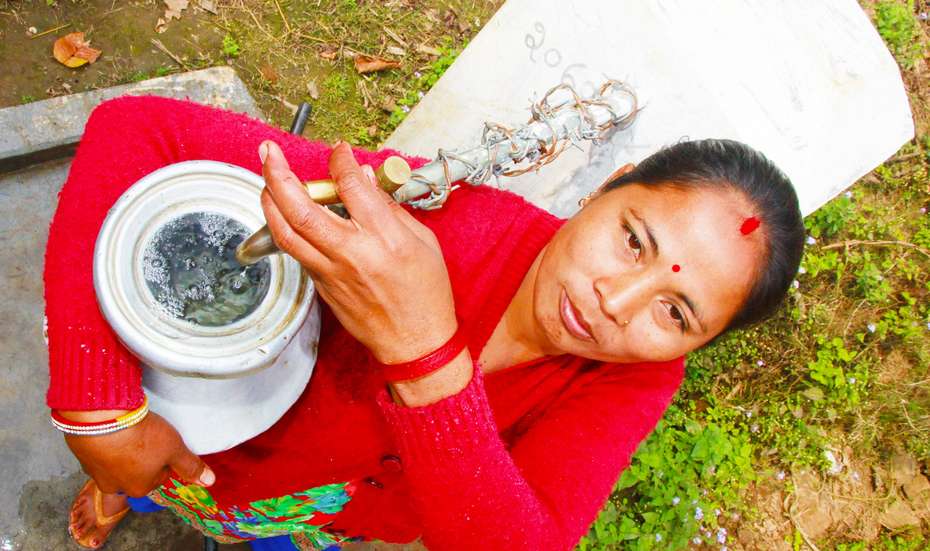
The situation is exacerbated by the lack of knowledge amongst the population regarding the connection between poor hygiene, contaminated water and diseases. Sirimaya’s children also used to frequently fall ill. This was caused by the dirty water, especially during the rainy season. The mother knows this now. In conjunction with the villagers, Welthungerhilfe is improving the situation in the village of Korak. Several toilets now provide privacy and ensure that sewage and drinking water remain separate.
How Welthungerhilfe Supports People in Nepal
-
Constructing several toilets for the residents of Korak.
-
Erecting a 5,000 litre water tank above the village. It is fed from a spring located even further up the mountain. Twice a day, the village’s water committee opens the valve. Pipes connect the tank to the houses of the village, providing people with clean water.
-
In hygiene training sessions, one of Welthungerhilfe's partner organisations educates the villagers on the importance of clean water for health. Whoever drinks contaminated water suffers diarrhoea more often. This is particularly dangerous for children.




